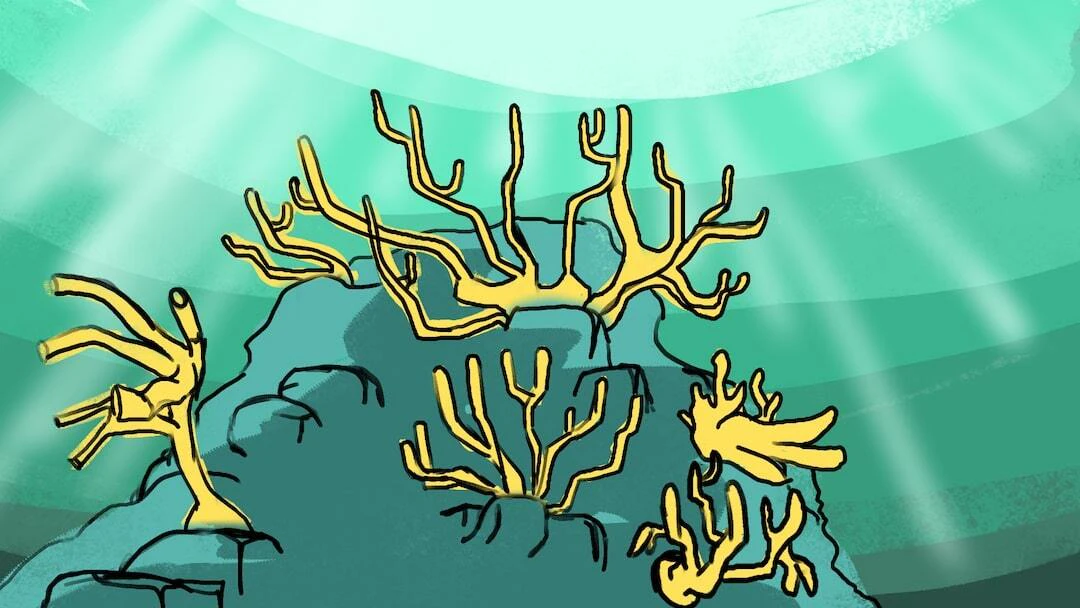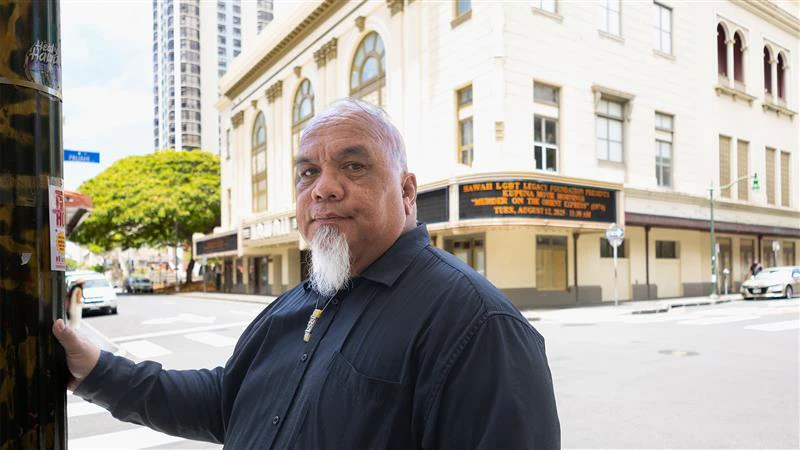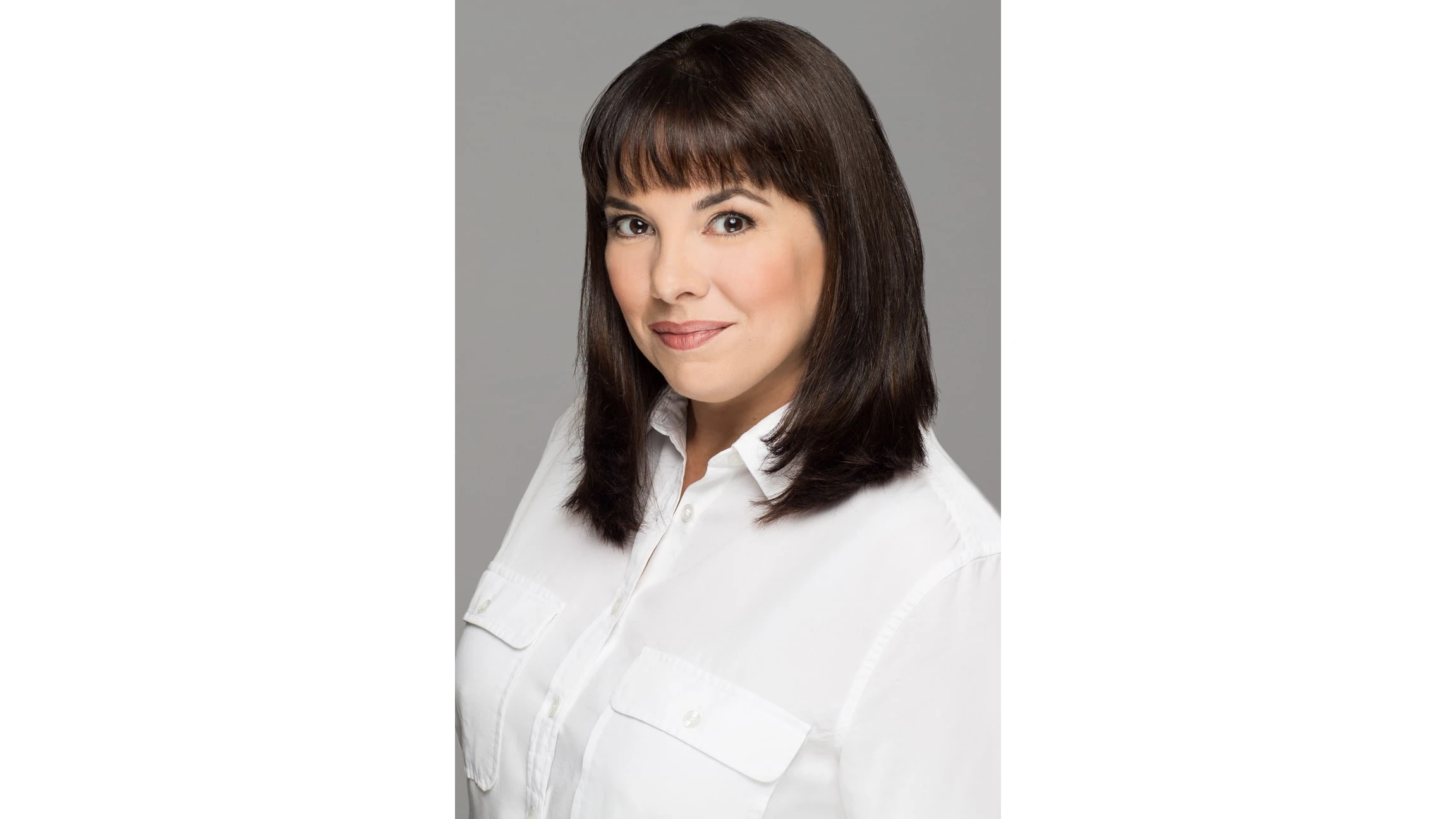When Lei Day arrives, Maui singer and songwriter Kalani Peʻa will don a gardenia lei with 250 flowers in honor of his late grandmother.
“Gardenia is my maternal grandmother’s favorite flower,” the four-time Grammy award winning artist told Aloha State Daily. “She used to have a hedge of them in Hilo, full during the season, April, May, until the first week of June. ... I remember my grandmother's house full of gardenia flowers and bouquets.”
Peʻa, a five-time Nā Hōkū Hanohano award winner, will headline his seventh annual “May Day is Lei Day in Hawaiʻi” concert on Saturday, May 3, at the Hawaii Theatre. That performance will feature Sean Naʻauao, who received the Nā Hōkū Hanohano Award for the Male Vocalist of the Year in 2024, along with Nā Kumu Hula Sonny Ching, Lōpaka Igarta-De Vera, Ka’ilihiwa Vaughan-Darval, Kauʻi Kamanaʻo, Kunewa Mook, Shelsea Lilia Ai, Carolee Nishi and Krystal Yamamura.
On Friday, May 2, Pe’a will perform along with Maui-based falsetto champion Antonio “Akoni” Robles in “May Day is Lei Day with Kalani Pe’a” at Kaimana Beach Hotel. The event is free and open to the public. It starts at 10 a.m. and includes a lei contest. Leis must be dropped off by 2 p.m. and winners of the contest will be named at 3 p.m., according to representatives of the hotel. The event is being sponsored by Highgate Hawaiʻi, Kaimana Beach Hotel, Pe’a, the Council for Native Hawaiian Advancement, Manuhealiʻi, Keahou Shopping Center and others.
Lei Day started with a few people wearing lei in Downtown Honolulu on May 1 in 1927, according to the City and County of Honolulu. Today, the annual event includes a lei contest, as well as performances.
Peʻa remembers cutting up paper to make flowers for lei in elementary school.
“May Day is very special,” he said. “It’s a good day to share Hawaiian music and Hawaiian language and hula and culture.”
His gardenia lei is created by Leilani Pearson, who grows the flowers on Maui, he said. Leis can bring you back to a sense of place and time, as well as memories of people, Peʻa added.
“It’s that moment of wearing a lei that reminds you of someone you love,” he said.
His maternal grandmother, Lu Kahunani Cristobal, was supportive of his pursuit of music and higher education, he said. In fact, she bought his plane ticket so he could go to Colorado Mesa University, where he planned to study vocal performance. It was his first time leaving the islands, he said. He was 18 years old.
She lived until her early 90s and eventually developed Alzheimer’s disease, which made it hard for her to recognize him. Peʻa wrote “Kahunani No ‘Ola’a” for her, which is part of his Grammy Award-winning second album, “No ‘Ane’i.”
“During her final years — out of a 12-year span of suffering from it — I would sing her song to her, and I think she would remember me through music,” he said. “She would remember me for that moment. For that split second, she remembered me through my song and through my voice.”
For Peʻa, music was healing for not just his grandmother, but his own journey to overcome a speech impediment as a child.
“I really do feel music is healing for the world,” he said.





